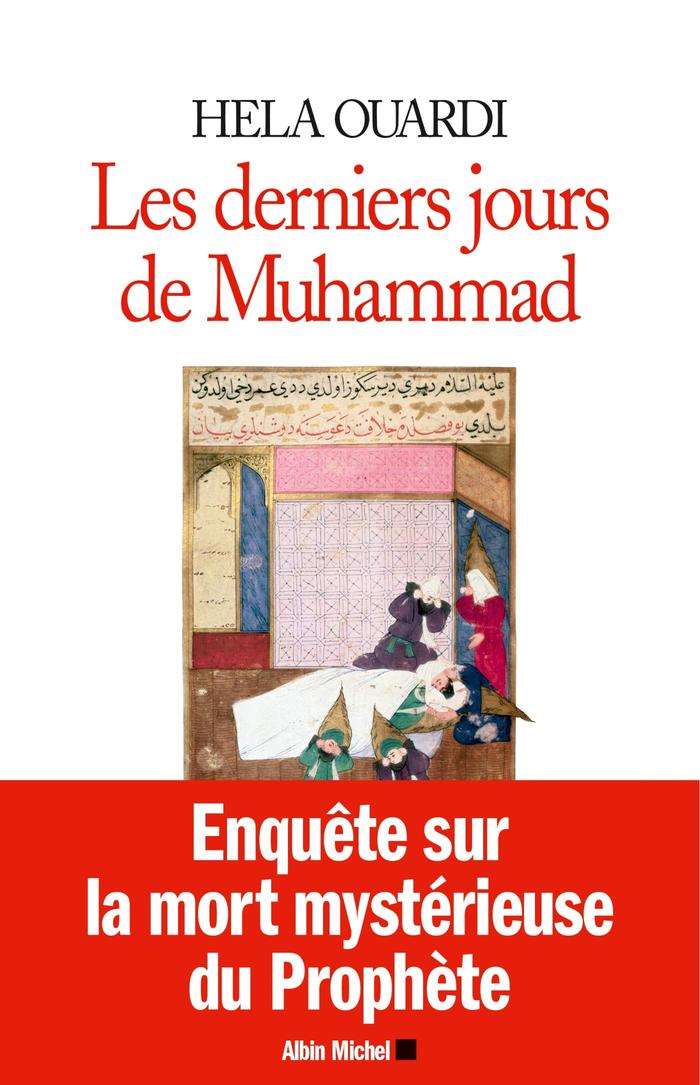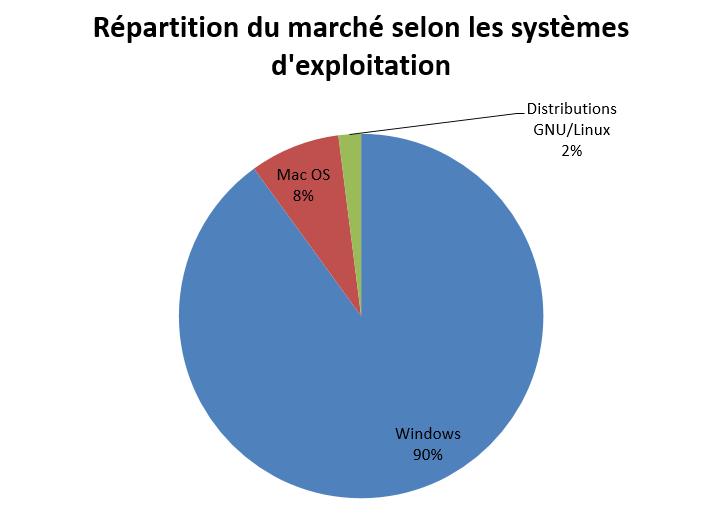Hela Ouardi and her “Last Days of the Prophet”
Historian Hela Ouardi. D.R.
By Nazim Maiza – Decadence by Michel Onfray was a reading for me, even an inconvenient and superfluous exercise from the point of view of the knowledge it peddles. Decadence is a kind of thesis which "necroses", throughout the book, the foundation of the Gospels, namely the apostles of Aïssa the "Christ", even going so far as to question the existence of this Prophet. Onfray did not use artifice or pretense in the reasons that led him to write this book; he calls himself an atheist and loathes religion, whatever it may be. This has the merit of being explicit. In truth, Onfray is not a chiaroscuro writer. I like him for this reason, for this courage.
Before getting to the heart of the matter, I would like to point out that I am not a historian, nor a specialist in Islam; everything I write today is the result of many readings on the subject and conferences in which I have been interested.
To confuse Shiism when I read The Last Days of the Prophet by Hela Ouardi is quite natural, but let's be clear, I am not presenting an olla-podrida without understanding what this book is about. It is clear that the author, Hela Ouardi, mainly takes up Shiite theses, nothing more, without accusing the latter of any "obedience", religious that goes without saying.
Right now, I am only humbly criticizing his vision of the Muslim tradition. In my opinion, it superficially presents what I believe to be a doxa. I strive to deliver my aletheia (design), nothing more.
Shiism in my daily life in Algeria, even in Algeria, has always intrigued me deeply. The number of Algerian Shiites is growing, the intellectual quality of “Sunni” Algerians who have become Shiites is also intriguing. For most of this small population, they are eminently intelligent, educated people and politically, the weight of Iran on the international scene gives credit to their palinody.
The questioning of the conditions for appointing the first caliph of Islam "post" Prophet Mohamed, Sala Allah Alayhi Wa Salam (SWS), has always been the prerogative of the Shiite movement in Islam, not to be confused with Kharidjism.
Hela Ouardi, a historian I discovered, tackles this subject with more vehemence than the Shiites themselves in her book The Last Days of the Prophet and less courage than Onfray's Decadence. This work was presented at the Algiers Book Fair.
The literature of this religious current – Shiism in Islam – is phenomenally abundant, and believe me when I tell you that this reading raises many questions for the “standard” reader. Being myself a “standard” reader, this question interested me a lot in my relative youth. I ended up, year after year, by understanding the real reasons for the advent of Shiism in the political context of the time. We'll talk about that in the conclusion.
In this work, it is argued by Hela Ouardi that the Prophet of Islam was prevented from making his will and that he was forced to hide a testamentary document in the scabbard of his sword for fear of being caught by His companions. She then brings other “revelations”. To write that today is to underestimate the power of a man − for it is a question of a man − what is more, a man who founded one of the greatest empires in history. known to mankind.
I naturally think of Alexander the Great. It's as if history is repeating itself with one difference. Indeed, I do not remember having read or heard a historian or other philosopher address the question of the political succession of Alexander III of Macedon or anathematize his companions. Men like Cratere who, just like Ibnou El-Khatab (radiah Allah anhou), had learned of Alexander's death while he was on his way back and Perdiccas to whom Alexander would have entrusted, dying, the royal ring, that recalls the sheath of Hela Ouardi. There is material for a historian, don't you think? Alexander is also another "great" character through the concretization of many concepts which until then were delusions of sovereigns because it is political succession that it is a question and not of religious succession. This is a preliminary nuance when tackling such a subject, especially for a historian. I think I can close this parenthesis; this parable is, for my part, a form of demonstrative necessity of what a political succession is in two contexts that are different in time but similar in fact.
At first glance, this nuance of political succession escapes the author, who gets her brushes tangled up, like Arcimboldo in front of her fruits. Candidly, it's a dissimilarity that could escape me, the "flycatcher" reader. You could easily absolve me because I am a profane but, for a historian, it is a little more delicate.

Clarifying the watermark idea diluted in the work of Hela Ouardi is essential. Indeed, this work is a literature based on "information" which, roughly speaking, crystallizes in the manner of Stendhal but without "love", in the following message: "Today, the Muslim world is in full whirlwind for the simple reason of the fact that after the death of the Prophet of Islam Mohamed (SWS), a ''coup'' was hatched by Aboubakr Essedik and Omar Ibnou El-Khettab to seize power.
According to Ms. Ouardi, no one knows what the Prophet Mohamed (SWS) died of. Some say poisoning; others talk about problems in the abdomen. One thing is certain: no one can say what the Prophet (SWS) died of, it is a truth.
After the Farewell Pilgrimage, the Prophet (SWS) returned to Medina where he decided to end his days out of love for this city and for the people of Medina, the famous Ansar. Subsequently, he fell ill, an illness which, as the days went by, ended up preventing him from leading the canonical prayers within the mosque. No longer able to do this, he asked his followers to tell Abubakr Essedik to be the imam behind whom they will pray. We must not forget that Abubakr has always been the faithful friend of the Prophet (SWS), before and after his conversion to Islam. It is important to remember this. There was resistance to this directive. The wife of the Prophet (SWS), Aisha (radhia Allah anha) herself was of the opinion that Omar Ibnou El-Khettab should be the acting imam, knowing that Aboubakr was her father. Faced with these challenges, the Prophet (SWS) insisted that it was Abubakr who led the prayers, and this was the case.
Let's dwell on this aspect for a moment. Hela Ouardi skillfully circumvents this episode in The Last Days of the Prophet, yet the literature is abundant in this direction, the testimonies of the sahaba (companions) are also numerous, but she chooses as a historian to ignore this. But let's continue.
So Abubakr becomes the Imam of the believers for a week, until Monday when, at the end of the morning, the Prophet (SWS) dies as a result of his illness. Aboubakr was not present at the time of the death as he was visiting his family in the suburbs of Medina. When he is notified of this, he rushes back, enters the apartment of the Prophet (SWS). He sees the Prophet (SWS) lying down, kisses him on the forehead and says: “As for the death that all human beings must taste, you have tasted it, O messenger of God! He then leaves the apartment adjoining the mosque and finds the alert faithful there. You should know that they had difficulty accepting the news, so that Omar Ibnou El-Khattab threatened anyone who would dare to say that the Prophet (SWS) had died.
Umar will say that the Prophet is not dead; he is not dead, he will just go away and come back like Moses (SAAWS) had come back; there is no question of Aïssa, “Jesus”, as Ouardi Hela proudly puts it.
This episode is important in the history of Muslims. The question that is relevant to ask is how a companion of the stature of Omar could not accept, momentarily admittedly, the death of the Prophet (SWS). For some scholars of Islam, the answer is simple: emotion prevailed over reason. In truth, Omar Ibnou El-Khettab was destabilized by the death of the Prophet (SWS).
Aboubakr Essedik, addressing the sahaba in the mosque, said: “Let those who worshiped Allah continue to worship him because God is Immortal and let those who worshiped Muhammad, let them know that Muhammad is dead.” He then recited the verse: “Mohamed is only a messenger – messengers before him have passed – If he therefore died or were killed, would you return on your heels? Anyone who turns back on his heels will do no harm to God, and God will soon reward the grateful.”
It was then that Abubakr gave his famous speech: “O people! Whoever worshiped Mohammad, let him know that Mohammad is dead; and whoever worships God, let him know that God is alive and does not die!”
It is important to know that Omar Ibnou El-Khettab will say later that when he heard this verse recited by Aboubakr, he had the impression that it was the first time he was listening to it, whereas he knew him very well. This shows the importance of the Quran in the context. Certainly, Omar knew the verse in question but in an abstract context. The verse says that Mohammad (SWS) was going to die one day, when that day came and Omar heard the verse, he absorbed it deeply.
The Ansar came together to discuss the political succession of the Prophet (SWS) – it is important to stress this – and not the religious succession. It should be known that the Prophet Mohamed (SWS) had two primary roles:
– He was the messenger of God: he educated people and helped them on their spiritual journey.
– He was head of a state he had founded: he took care of the policy to be conducted, he taught Muslims the importance of being structured, organized and united around an ideology, a law , that of the Koran.
So the Ansar get together and start discussing this political succession. They all agree to designate Saâd Ibnou Oubada as the political successor of the Prophet (SWS), a “great among the greats of Medina”. It must also be understood that the Ansar thought and believed that they had priority in the management of the Muslim nation because, not only were they the ones who energetically supported the cause, but also because God never ceased to quote them in the Holy Koran.
Aboubakr will try to convince the Ansar in this direction, he makes them a proposal: "Here is Omar on my right and Abou Oubayda on my left, I think that these two people are able to lead the community." At this moment, Omar reacts: “It is out of the question that someone takes the lead as long as Aboubakr is among us.” Then he highlighted the qualities of Abubakr and what the Prophet (SWS) said about him (there are several hadiths on this subject).
In short, Aboubakr won by the majority. There was no consensus, of course, but the majority spoke calmly and without bloodshed. And he was the first caliph. This means that Muslims were in a "pure democratic" process and not in a kind of "pronunciamiento" that Hela Ouardi believes to be the reasons for the discord in the Muslim world.
Muslim tradition is not in favor of the transmission of hereditary power. It was much later, in the time of Mouawiya and his son Yazid, that the "monarchy" was established.
In conclusion, I would like to say one thing about Shiism because the author of the book The Last Days of the Prophet questions the conditions under which the first caliph of "post" Islam Prophet Muhammad (SWS) was proclaimed, a subject which has always been the prerogative of the Shiite current in Islam. I do not think I am able to demonstrate the illogicalities of Shiism, nor even claim to hold the truth, but understand my displeasure when I read Mrs. Ouardi who surfs, like Joël de Rornay, on the wave of Kamel Daoud, Yasmina Khadra, Amin Zaoui and other candidates who dream of seeing a pseudo-ulema fatwa issued to consolidate their status as exiles for freedom against intolerant Islam.
Not being an ex-professo appreciator or master of the history of Islam, I myself was challenged by this work and by the various declarations of Hela Ouardi, who says that her book is the fruit of many years of work but also that it provides no answer; its purpose is to ask important questions in today's Muslim world.
The Shiite current considers that the transmission of political power was done against Ali Ibnou Abi Taleb (radhia Allah anhou), it is clear but, in the time of the Abbasids, they had the opportunity to see a descendant directly from Ali in power; they refused and demanded that he be a descendant of El-Hussain, one of the many sons of Ali, this is their dogma today. Do you know why ? Hussain's mother was Persia. So understand that Shiism is political and not religious.
N. Mr.







